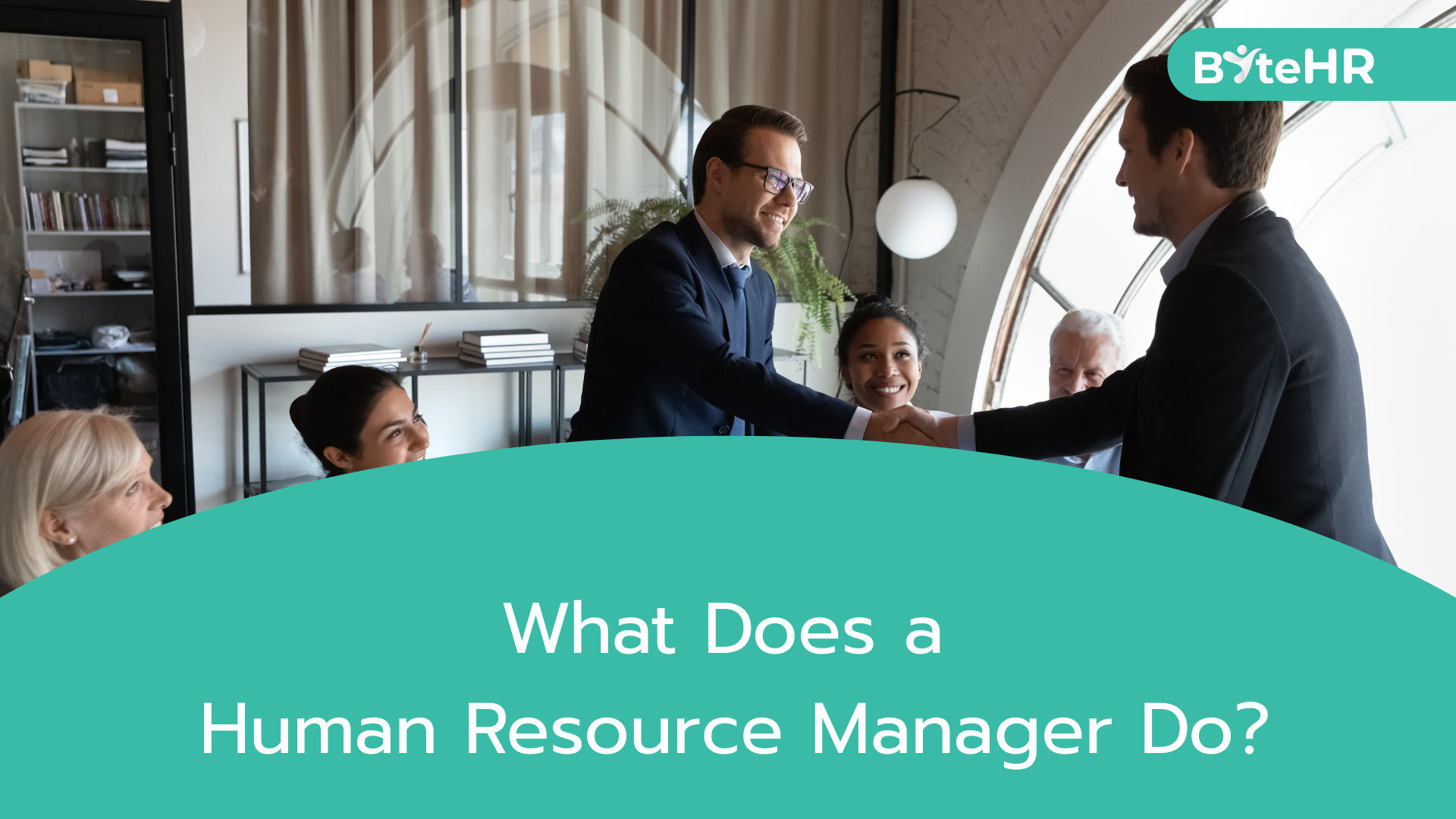What Does a Human Resource Manager Do?

A Human Resource (HR) Manager plays one of the most vital roles in any organization. They connect leadership and employees, ensuring that business goals align with people strategy. From recruitment to employee retention, HR managers handle diverse responsibilities that keep businesses running smoothly and employees engaged.
The Role of an HR Manager
At its core, the HR manager’s role revolves around managing the company’s most important asset, its people. They are responsible for recruiting talent, onboarding new hires, managing performance, developing workplace policies, handling employee relations, and ensuring compliance with labor regulations. Their duties balance strategic planning with daily operations, making them both a people leader and an administrative expert.
1. Recruitment and Hiring
Finding the right talent is one of an HR manager’s key functions. The process begins with understanding the needs of each department and crafting job descriptions that attract qualified candidates. HR managers oversee the entire hiring cycle, advertising job openings, screening resumes, conducting interviews, and coordinating final offers.
They also play a strategic role in employer branding. In a competitive job market, a company’s reputation as a great place to work influences its ability to attract top talent. HR managers often collaborate with marketing and leadership teams to shape that reputation.
2. Employee Onboarding and Orientation
Once new employees are hired, HR managers ensure they have the tools and knowledge to succeed. Effective onboarding programs go beyond administrative formalities. They introduce company culture, policies, and team dynamics, helping new hires integrate quickly.
A strong onboarding experience has lasting benefits, employees who feel supported early on tend to stay longer and perform better.
3. Training and Development
HR managers are responsible for identifying skill gaps and organizing professional development initiatives. This may include workshops, technical training, leadership programs, or mentoring schemes.
By investing in employee growth, HR not only boosts performance but also fosters loyalty. Employees value companies that invest in their learning. In many organizations, HR managers also track training outcomes through performance appraisals and career progression data.

4. Performance Management
Monitoring and improving performance is another critical HR function. HR managers collaborate with department heads to set performance standards and evaluation processes. Regular feedback sessions, performance reviews, and measurable goals help employees stay aligned with organizational objectives.
A modern HR manager also ensures the performance review process remains constructive and fair—focusing on development opportunities instead of mere evaluation.
5. Compensation and Benefits
Rewarding employees fairly and competitively is essential for motivation and retention. HR managers design compensation structures, ensuring compliance with laws and industry standards. They manage everything from salary scales and increments to incentive schemes and bonuses.
They also oversee benefits administration, health insurance, retirement plans, paid leaves, and wellness programs. Strategic HR managers regularly benchmark these offerings against market trends to maintain competitiveness.
6. Employee Relations and Conflict Resolution
Maintaining a healthy workplace culture requires skillful communication and empathy. HR managers act as mediators when conflicts arise and ensure that grievances are addressed promptly and fairly.
They develop and implement internal policies to promote inclusivity, diversity, and respect. A part of their role involves conducting investigations when necessary and fostering a culture of open dialogue where employees feel safe to share feedback.
7. Compliance and Legal Responsibilities
HR managers ensure the organization operates in compliance with employment laws, health and safety regulations, and labor standards. This includes managing records, handling disciplinary procedures properly, and staying updated on policy changes at the local and national levels.
Non-compliance can lead to penalties, reputation damage, and employee dissatisfaction. Hence, HR managers maintain meticulous documentation and often undergo continuous training in employment law.
8. Strategic HR Planning
Beyond day-to-day tasks, HR managers contribute to long-term business strategy. They analyze workforce data to forecast hiring needs, identify succession plans, and align talent management with company objectives.
For example, during growth phases, HR managers plan recruitment drives or leadership development programs. In times of restructuring, they work on redeployments or redundancy planning while minimizing disruption and maintaining morale.

9. Promoting Employee Engagement and Retention
Employee engagement directly influences productivity and profitability. HR managers design initiatives such as recognition programs, wellness activities, surveys, and career development paths to keep employees motivated.
They also measure engagement through feedback tools and exit interviews, using insights to improve retention strategies. A good HR manager understands that satisfied employees become long-term contributors and brand advocates.
10. Adapting to Technology and Hybrid Work
In 2025, HR professionals must navigate the evolving workplace landscape shaped by hybrid work and HR technology. Tools like employee management software and analytics platforms help automate administrative tasks and provide data-driven insights.
HR managers now oversee digital transformation in workforce management, implementing online recruitment platforms, cloud-based payroll systems, and virtual training solutions. Adapting to these technologies strengthens efficiency and improves employee experience.
Key Skills of a Successful HR Manager
An effective HR manager combines technical knowledge with soft skills. Important traits include:
Strong communication and interpersonal abilities
Organizational and time management skills
Analytical thinking for HR metrics and workforce planning
Ethical judgment and confidentiality
Leadership and conflict resolution skills
Adaptability to technology and workplace change
These competencies allow HR managers to lead teams effectively and drive positive workplace evolution.
The HR Manager’s Impact on Business Success
A dedicated HR manager strengthens both operational efficiency and company culture. By aligning people practices with organizational goals, they help businesses attract talent, reduce turnover, and enhance productivity.
Their contribution goes beyond policy enforcement, they shape employee satisfaction, brand identity, and sustainable growth. In many small and mid-sized businesses, the HR manager also wears multiple hats, influencing everything from payroll to strategic direction.
Conclusion
A human resource manager serves as the backbone of organizational success. From recruiting the right people to nurturing their growth and ensuring compliance, their work touches every aspect of the employee journey. In a world of evolving workplaces and digital transformation, HR managers play an even more strategic role, championing both business performance and employee wellbeing.
Investing in strong HR leadership ensures that your business not only attracts great talent but also empowers them to thrive, innovate, and stay committed for the long term.
If you're running a business in Malaysia, choosing the right HR software in 2025 is critical. You can find more information in Top 5 HR Software in Malaysia for 2025. The investment in effective employee management pays dividends through improved performance, higher retention, and sustainable business growth.
For more on HR development, tax knowledge, and tips for employees and entrepreneurs, follow ByteHR. If you're considering HR software, contact ByteHR for a free consultation at 036 419 5276 or salesmy@byte-hr.com.


